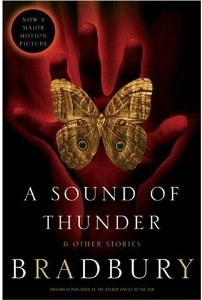- HOME
- INTRO TO THE FORUM
- BADLY WRITTEN, BADLY SPOKEN
- GETTING
TO KNOW ENGLISH - PREPARING FOR ENGLISH PROFICIENCY TESTS
- GOING DEEPER INTO ENGLISH
- YOU ASKED ME THIS QUESTION
- EDUCATION AND TEACHING FORUM
- ADVICE AND DISSENT
- MY MEDIA ENGLISH WATCH
- STUDENTS' SOUNDING BOARD
- LANGUAGE HUMOR AT ITS FINEST
- THE LOUNGE
- NOTABLE WORKS BY OUR VERY OWN
- ESSAYS BY JOSE CARILLO
- The Heavy Price of Misplacing One’s Trust and Confidence
- The Three Basic Word-Positioning Principles For Emphasizing Ideas
- Use the Reflexive Form When The Verb’s Object is The Doer Itself
- Ferreting Out Truth And Falsehood From The Flood of Poll Propaganda
- Using The Connectives To Flag The Contours And Detours Of Our Ideas
- My Hunch Was Right About The Usage Of “Between” And “Among”
- ABOUT JOSE CARILLO
- READINGS ABOUT LANGUAGE
- TIME OUT FROM ENGLISH GRAMMAR
- NEWS AND COMMENTARY
- BOOKSHOP
- ARCHIVES
TIME OUT FROM ENGLISH GRAMMAR
This section features wide-ranging, thought-provoking articles in English on any subject under the sun. Its objective is to present new, mind-changing ideas as well as to show to serious students of English how the various tools of the language can be felicitously harnessed to report a momentous or life-changing finding or event, to espouse or oppose an idea, or to express a deeply felt view about the world around us.
The outstanding English-language expositions to be featured here will mostly be presented through links to the websites that carry them. To put a particular work in better context, links to critiques, biographical sketches, and various other material about the author and his or her works will usually be also provided.
I hope you’ll enjoy the new selections that will be presented here each week.Joe Carillo
Ray Bradbury’s stories: A gift of language and the imagination
Who among us has not been touched and awed by Ray Bradbury’s wondrous gift of language and immense power of imagination? Bradbury, one of the greatest American science-fiction writers of all time, has been writing for almost 90 years now, masterfully using English prose to continually remind us that, in the words of book critic Nathaniel Rich, “nothing is more frightening than when the chaos of the real world intrudes on the blissful cocoon of youthful innocence.”
In “Mythologist of Our Age,” a retrospective on Bradbury in the May 10, 2010 issue of Slate, Rich writes that Bradbury’s best stories have a strange familiarity about them. “They’re like long-forgotten acquaintances—you know you’ve met them somewhere before,” he explains. “The stories are familiar because they’ve been adapted, and plundered from, by countless other writers—in books, television shows, and films. To the extent that there is a mythology of our age, Bradbury is one of its creators.” Indeed, so pervasive has been Bradbury’s influence on the public imagination for three generations now that that even mega-bestselling horror story writer Stephen King once wrote, “Without Ray Bradbury, there would be no Stephen King.”

Rich says that although the exuberance of Bradbury’s prose is at times almost childlike in its purity, “his vision is vast enough that he knows what lurks on the other side: disillusionment, disorder, cynicism.” The enormous depth and clarity of this vision is clearly evident in Bradbury’s seminal short-story on time travel, “A Sound of Thunder,” where he explores the possible unimaginable ripple effects of visiting the past on the unfolding of life in the world as we know it. “You read Bradbury with a growing sense of wonder and joy,” Rich says. “It’s only on reflection, after the stories take up residence in your head and crawl deep into the dark cracks and corners, that the wonder mutates into something closer to dread.”
Read Nathaniel Rich’s ““Mythologist of Our Age” in Slate now!
Read Ray Bradbury’s short story “A Sound of Thunder” on the web now!
Read an excerpt from Ray Bradbury’s novel Something Wicked This Way Comes now!
RELATED READING:
Considered the most prolific and successful writer of his time, H.G. Wells wrote science fiction in brilliantly matter-of-fact prose, among them the novels The Time Machine, The Island of Doctor Moreau, The Invisible Man, and The War of the Worlds. As told in Michael Sherborne’s biography of the man, H G Wells: Another Kind of Life, “the books just kept on coming” because for Wells, “writing was like scratching an endless itch.”
In his review of Wells’s biography, however, Robert Douglas-Fairhurst observes that outside his science fiction, Wells was a lothario even into his old age, “a socialist who grimly clung onto his money until it was prised away by the tax man; a tolerant thinker who none the less confessed to having ‘a strain of the Teuton in my composition’ when he found himself ‘on a mainly Yiddish boat’ during wartime; an atheist who remained haunted by his mother’s rhetoric of hellfire and damnation. He had more lives than a cat and, what is more, he lived them simultaneously.”
Read Robert Douglas-Fairhurst’s review of H.G. Wells: Another Kind of Life now!






